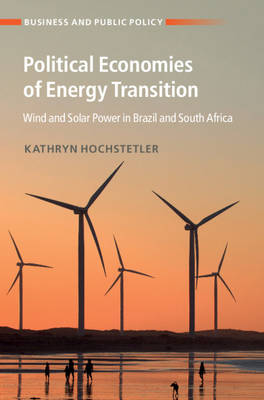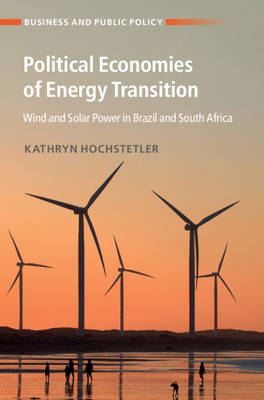
- Afhalen na 1 uur in een winkel met voorraad
- Gratis thuislevering in België vanaf € 30
- Ruim aanbod met 7 miljoen producten
- Afhalen na 1 uur in een winkel met voorraad
- Gratis thuislevering in België vanaf € 30
- Ruim aanbod met 7 miljoen producten
Zoeken
Political Economies of Energy Transition
Wind and Solar Power in Brazil and South Africa
Kathryn Hochstetler
€ 148,45
+ 296 punten
Omschrijving
Global climate solutions depend on low-carbon energy transitions in developing countries, but little is known about how those will unfold. Examining the transitions of Brazil and South Africa, Hochstetler reveals how choices about wind and solar power respond to four different constellations of interests and institutions, or four simultaneous political economies of energy transition. The political economy of climate change set Brazil and South Africa on different tracks, with South Africa's coal-based electricity system fighting against an existential threat. Since deforestation dominates Brazil's climate emissions, climate concerns were secondary there for electricity planning. Both saw significant mobilization around industrial policy and cost and consumption issues, showing the importance of economic considerations for electricity choices in emerging economies. Host communities resisted Brazilian wind power, but accepted other forms. Hochstetler argues that national energy transition finally depends on the intersection of these political economies, with South Africa illustrating a politicized transition mode and Brazil presenting a bureaucracy-dominant one.
Specificaties
Betrokkenen
- Auteur(s):
- Uitgeverij:
Inhoud
- Aantal bladzijden:
- 270
- Taal:
- Engels
- Reeks:
Eigenschappen
- Productcode (EAN):
- 9781108843843
- Verschijningsdatum:
- 26/11/2020
- Uitvoering:
- Hardcover
- Formaat:
- Genaaid
- Afmetingen:
- 152 mm x 229 mm
- Gewicht:
- 562 g

Alleen bij Standaard Boekhandel
+ 296 punten op je klantenkaart van Standaard Boekhandel
Beoordelingen
We publiceren alleen reviews die voldoen aan de voorwaarden voor reviews. Bekijk onze voorwaarden voor reviews.











